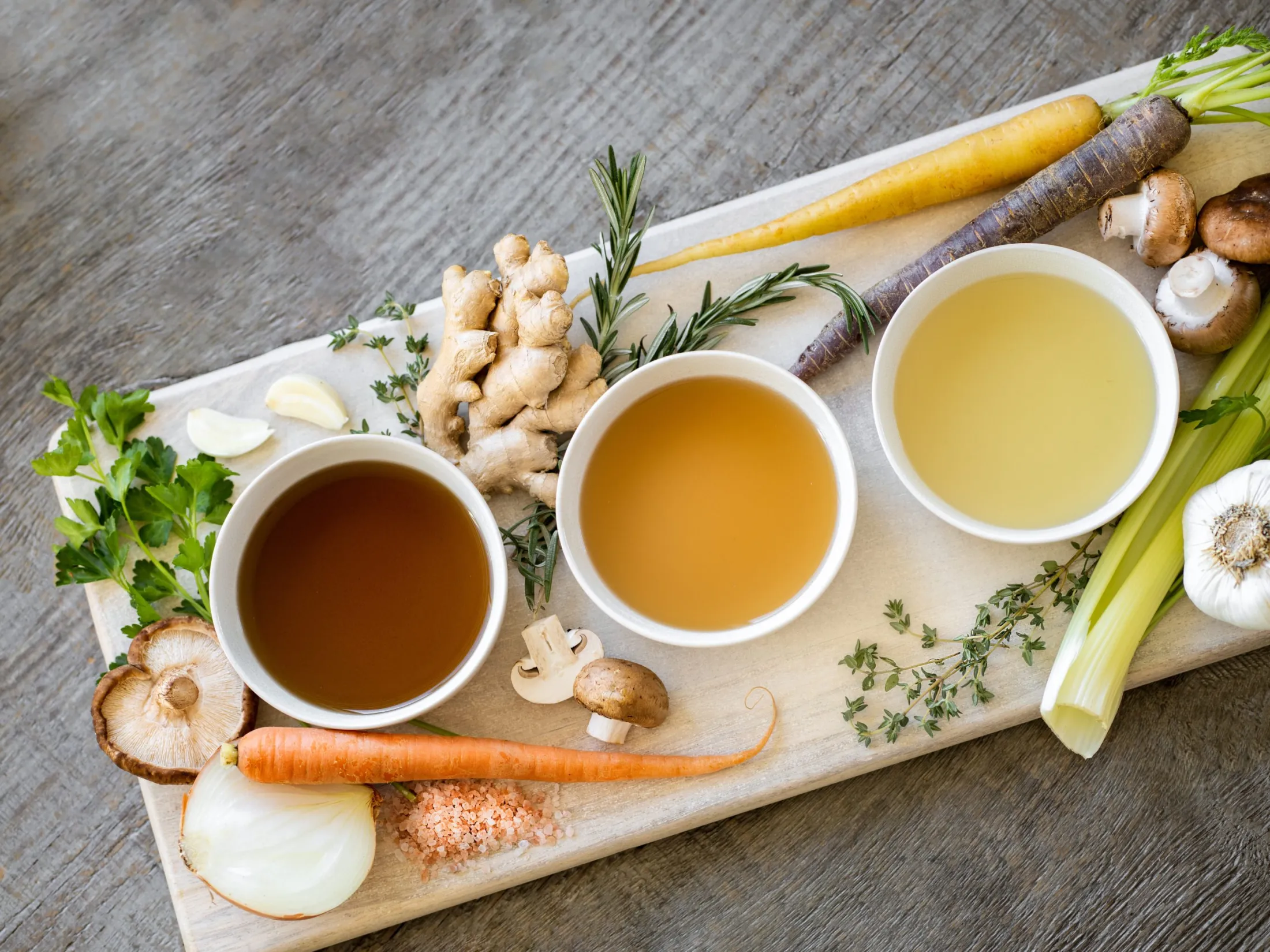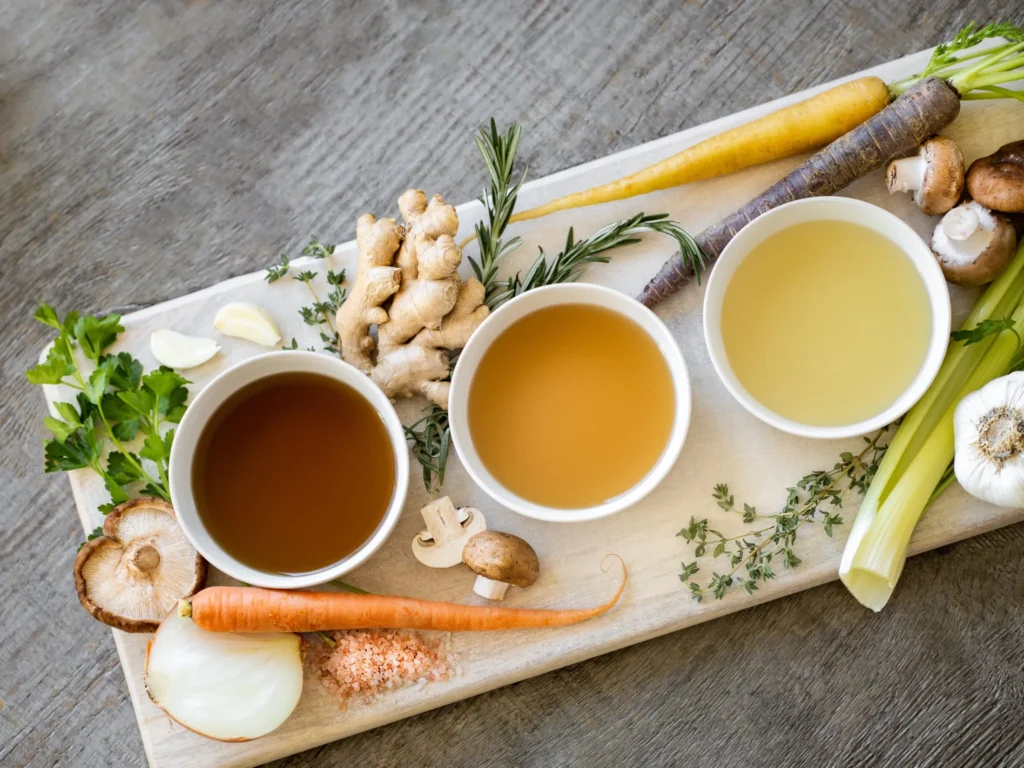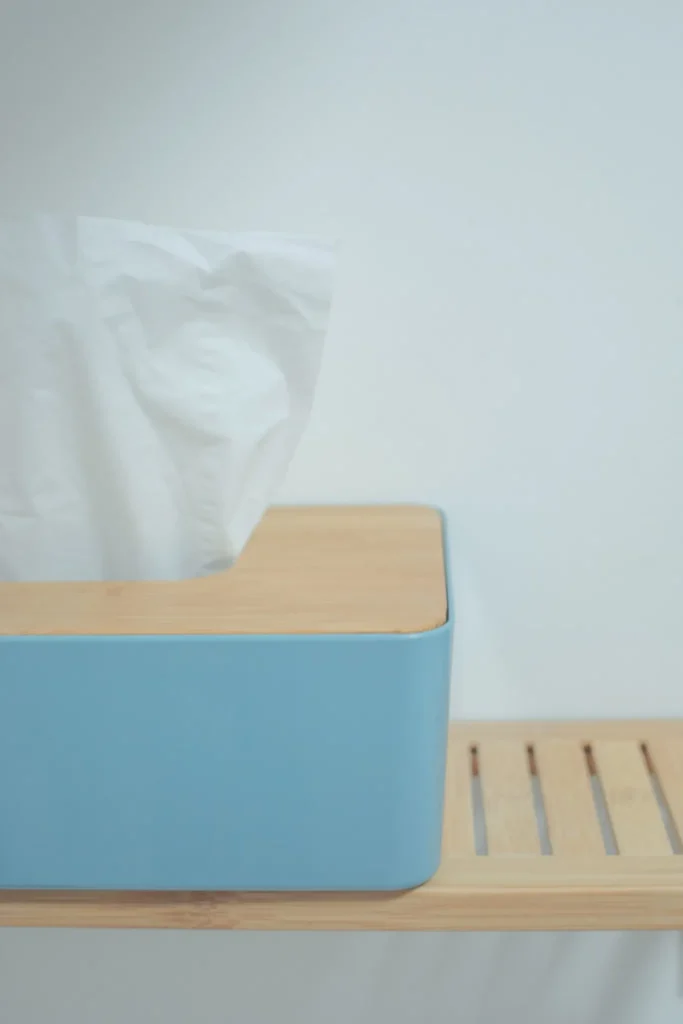The Blog
How To Naturally Support Yourself During Cold & Flu Season

Welp, it’s Winter. If you’re a resident of the East Coast of the United States, like me, then you know that we’re in the midst of sniffle season. But what if I told you that you didn’t just have to sit back and suffer with cold and flu symptoms until Spring? Open your mind, and learn how to support yourself naturally throughout this cold and flu season with holistic medicine.

Where to Start
I remember almost every year of my childhood until early adulthood being stricken with at least two nasty, long-lasting sinus infections each winter. The same process would happen each time: get sick, go to the doctor, get antibiotics, deal with their side effects while feeling better, and then hope not to get sick again that year. It was miserable. I did little to naturally support my immune system and prevent further illness.

As I’ve learned more about holistic health and how to support my immune system naturally, I’ve noticed that even if I do get sick, the sickness is less severe and shorter. So, here I am to share my tips with you in hopes that you can have the same results. Of course, I’m not a medical professional, so you should not take my words as the gospel. Always consult your trusted medical professional before starting any supplement regimens.
Supporting your immune system is one of the most important things you can do for your overall health. Supporting your immune system can include getting enough sleep, eating a balanced and nutrient-rich diet, and getting enough sunlight.
I’ll show you some easy, low-cost steps to support yourself naturally during cold and flu season.
Essential Vitamins & Nutrients
Eating a whole-food, nutrient-dense diet is the best way to naturally support your body in the winter and beyond. However, most of us struggle to get all the necessary vitamins and nutrients we need. Taking a few supplements can fill in those gaps. Here are a few that I take daily to help support my immune system.
Vitamin D3
During colder months, the desire to leave the house to soak up some sun rays dwindles. Not to mention that said sun rays can be few and far between. Also, if you’re like me, the time change can really affect your attitude, with the days seeming to end around 5 PM. These things can really affect your Vitamin D levels.
Vit D Supplement
The Vitamin D3 supplement I use daily is Mary Ruth’s Organic Vitamin D plus K2 spray. Vitamin D3 is fat-soluble, so having an oil-based Vitamin D3 supplement is essential. Mary Ruth’s spray is olive oil-based. K2 is also an important vitamin required for Vitamin D3 to be best absorbed by your bones. Check out my article here to learn more about the importance of K2 here.
Vitamin C
You know what they say: “You’re feeling sick? Make sure to take your vitamin C!” Well, ok, babes, consider it done!
Vitamin C, also known as ascorbic acid, is arguably one of the most important vitamins you need to consume. It plays a role in nearly every area of your body. It’s instrumental in protecting and healing your cells. According to the Mayo Clinic, Vitamin C is essential to forming bone blood vessels, cartilage, muscle, and collagen. It protects your cells from free radicals, which are known to be damaging to cells and even possibly cancer.
Again, Garden of Life’s mykind Organic Vitamin C is my go-to. Just a few sprays under your tongue a day is all you need to help keep the nasties away. I like to spray about 5-ish sprays under my tongue both in the morning and night. The flavor I typically order is Orange/Tangerine. But if you prefer a raspberry flavor, no worries. That’s available for you, too.
Full disclaimer: I haven’t taken a Vitamin C supplement in a while, but I still believe it’s important when feeling sick or to prevent sickness.
Vitamin B12
Vitamin B12 helps to keep your cells healthy and helps them to continue to create more DNA. This is essential to even out the typical cell death that happens daily. When we start to have more cell death than regeneration, aging occurs.
Vitamin B12 is also important in preventing megaloblastic anemia, a condition that can make people feel tired and weak. I think that this condition is what I was experiencing before I started taking a Vitamin B12 supplement. Only once my vitamin levels increased did I realize how fatigued I’d felt for so long.
My choice for Vitamin B12 is Garden of Life’s mykind Organic B12 spray. I’ve been using this spray for years and still love taking it. It’s convenient because you only need one spray under your tongue a day to start feeling results. It also has a great flavor. This is handy when discussing my go-to Vitamin D supplement below. The spray is also accessible. You don’t need to worry about taking a pill, so it’s great for children and old people alike.
Magnesium
Magnesium is one of our bodies’ most important yet least talked about minerals. It’s found in every single one of your body’s cells and is involved in hundreds of your body’s functions. One of magnesium’s biggest jobs is to regulate cortisol (stress hormone) levels. According to Healthline, magnesium is also responsible for:
- Energy creation: converting food into energy
- Protein formation: creating new proteins from amino acids
- Gene maintenance: helping create and repair DNA and RNA
- Muscle movements: aiding in muscle contraction and relaxation
- Nervous system regulation: regulating neurotransmitters, which send messages throughout your brain and nervous system
Healthline states that some of the best food sources for magnesium are:
- Pumpkin seeds: 37% of the DV per ounce (28 grams)
- Chia seeds: 26% of the DV per ounce (28 grams)
- Spinach, boiled: 19% of the DV per 1/2 cup (90 grams)
- Almonds: 19% of the DV per ounce (28 grams)
- Cashews: 18% of the DV per ounce (28 grams)
- Black beans, cooked: 14% of the DV per 1/2 cup (86 grams)
- Edamame, cooked: 12% of the DV per 1/2 cup (78 grams)
- Peanut butter: 12% of the DV per 2 tablespoons (32 grams)
- Brown rice, cooked: 10% of the DV per 1/2 cup (100 grams)
- Salmon, cooked: 6% of the DV per 3 ounces (85 grams)
- Halibut, cooked: 6% of the DV per 3 ounces (85 grams)
- Avocado: 5% of the DV per 1/2 cup (75 grams)
Men need about 400-420 mg per day, while women need about 310-320 mg. I recently started taking a magnesium supplement at night. I truly cannot remember sleeping better. Calm magnesium powder mixed with water (and sometimes lemon juice) is my go-to. I like the unflavored version. It’s slightly effervescent and tangy. If you’re taking antibiotics or other medications, it’s important to check with your doctor to ensure a magnesium supplement won’t interfere.
Stay Hydrated
By now, everyone knows that staying hydrated keeps our body’s cells happy, increasing our overall health. Dehydration can lead to feeling sluggish and can make us more susceptible to catching bugs. Make sure to drink lots of liquids each day. Water is a great way to stay hydrated, but it isn’t the only way.
Drinking hot tea can provide you with essential liquid, as well as provide you with the homeopathic effects of whatever herb you’re drinking. Peppermint tea is one of my favorite teas to drink. It’s caffeine-free and is great for your belly. My go-to brand is Yogi Tea. I always choose organic teas to reduce the pesticides and other nasty chemicals my body gets exposed to.
Fresh juice is another way to keep yourself hydrated during the winter months. To juice at home, which will be fresher and WAY more cost-effective, I recommend the Omega H3000D Cold Press Juicer. It’s compact, quick, easy to use, and budget- and beginner-friendly.
Some of my favorite juices to make are orange, celery, and watermelon. Fresh juice is a yummy, natural way to stay hydrated and receive essential vitamins and minerals.
If you prefer water, add organic coconut water and lemon juice to your glass for added hydration and nutrients. I always start my morning with 32 ounces of water with lemon juice. If I have coconut water, I add about 16oz of it to 16oz of filtered water. It’s delicious and the perfect start to my mornings!
Natural Supplements
Supplements are a subject that some holistic experts have differing options about. Some push supplements, while others say that we should be receiving our supplements from our diet. Personally, I agree with both. Some outside supplements are necessary in some cases, like Vitamin D in the winter.
I take a few additional daily supplements in the colder months to keep my immune system healthy and strong.
Elderberry Extract
Elderberry (Sambucus) has a long history of use, going all the way back to ancient Egypt. It’s one of the most commonly used medicinal plants in the world. However, it’s important to know that the raw bark, berries, and leaves are poisonous. Elderberry extract, tinctures, and syrup are the safest ways to experience elderberry’s benefits.
Elderberries are known for their high rates of Vitamin C, dietary fiber, phenolic acids, flavonols, and anthocyanins. The latter two make it anti-inflammatory and full of antioxidants.
Elderberry is known to reduce cold and flu symptoms. When I had C*vid, I took Elderberry syrup in water daily. While I felt fatigued for a couple of weeks, I didn’t need to visit the doctor to rush to the hospital to deal with my symptoms. I believe that elderberry helped me keep most of my symptoms manageable. Elderberry’s antioxidant properties can help improve your mood and your overall health, as well.
I usually grab my Elderberry Extract from the Vitamin Shoppe. Mix about a teaspoon with 8 ounces of water, or follow the instructions on the bottle.
Oil of Oregano
Oil of Oregano is the oil derived from oregano leaves. The oil is great for supporting your immune system. It’s known for being a natural antibiotic and having anti-fungal, antioxidant, and anti-inflammatory properties.
I take my Oil of Oregano orally with a dropper. NEVER consume an oregano essential oil. Any oil you consume should be food-grade. Recently, I’ve been taking Garden of Life’s Oil of Oregano.
Get Lots Of Sleep
Sleeping is one of the most important things you can do to keep your body healthy and to recover from illness. When we sleep, our body gets a chance to heal itself and return to homeostasis. Experts recommend getting at least seven hours of sleep a night. Aim for nine hours if possible, but some experts say that more than nine hours can be detrimental.
When you’re feeling unwell, don’t hesitate to rest more! Napping is one of my favorite things to do when I’m feeling sick.
Sweat It Out
Exercise is a great way to keep your body healthy year-round. Even twenty minutes a day can make a huge difference in your physical and mental health. Some easy, at-home ways to get moving are watching an exercise video or taking a walk.
If you can’t sweat it out via exercise at a gym or at home, maybe you want to consider an at-home portable sauna or a hot bath to open your detox pathways.

Other Ways to Support Your Body
Detox
Opening your detox pathways is the number 1 way to decrease inflammation and reduce your illness frequency.
You can detox your body naturally by sweating, lymphatic massages (check out dry brushing), and eating a healthy diet.
Eat a whole-food, plant-based diet
Eating a whole-food, plant-based diet is the best way to naturally support your body and stay healthy year-round. Avoiding processed foods will keep inflammation down and keep your digestive system strong. The best way to consume vitamins and minerals is through the natural process of consuming them with food. We receive most of our vitamins and minerals from fruits and veggies. Having them in their natural state usually cuts down on digestive issues, making the positive effects a bit easier to experience.
Incorporating meat and dairy can add other essential nutrients to your diet. Consuming certain meat products, like bone broth, liver, or gelatin gummies/marshmallows, increases the bioavailability of the nutrients. That allows your body to process them more effectively!
If you aren’t interested in consuming many supplements, eating your vitamins and minerals is the way to go!
I am not a medical professional. This information is for informational purposes only. You should always contact a medical professional before taking supplements or making medical decisions.
Disclosure: This post may contain affiliate links, meaning I get a commission if you decide to make a purchase through my links at no cost to you. Please read my disclosure to learn more.
I hope this post helps steer you in the right direction to naturally support your immune system in the colder months. They can be dreadful, I know. But as you can see, there are ways that we can curb the roughness the cold and flu season brings. As always, if you have any questions, comment below! I’d love to share any of my personal experiences with you.
So, what are you incorporating to support your body and immune system? Let me know below!
Happy Healing! xoxo
Comments will load here
Be the first to comment